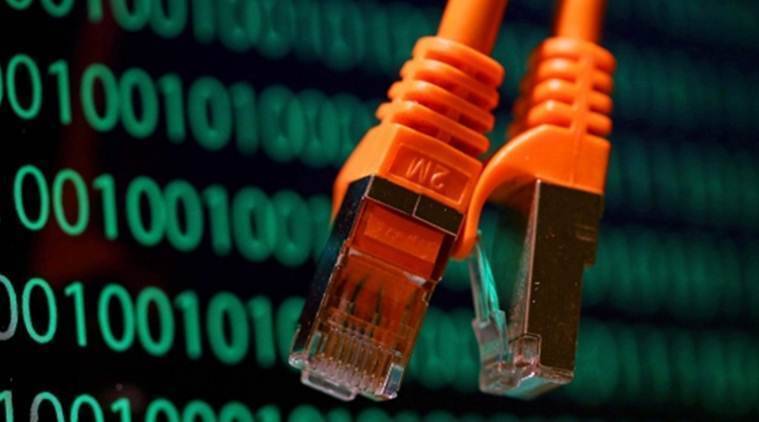Resilient internet is key to realizing Pakistan’s vision for boosting IT exports: Experts
Say alternative connectivity options using modern technology & terrestrial routes are critical for a resilient internet
Dr. Abid Qaiyum Suleri calls for a comprehensive strategy to regulate internet technology without disrupting connectivity
ISLAMABAD ( WEB NEWS )
The experts at public-private dialogue on information technology and telecommunication underscored that the country’s vision to boost its IT exports to a significant level would be unachievable without a resilient internet, as alternative connectivity options based on modern technology and terrestrial routes are the way forward.
The Sustainable Development Policy Institute (SDPI)’s 69th Study Group on Information technology (IT) and Telecommunication hosted the Public-Private Dialogue on Preserving the lifeline of our Modern World: Strengthening the Internet Resilience in Pakistan.
Chaired by Brigadier (Retd) Mohammad Yasin, Senior Advisor Emeritus at SDPI, the public-private dialogue brought together experts to address mounting issues plaguing the nation’s internet connectivity and its implications for economic and social life.
In his welcome remarks, Brigadier (Retd) Yasin opened the discussion by stressing that the indefinite performance issues of Pakistan’s internet infrastructure are unacceptable. “Sluggish speeds and frequent disruptions are taking a toll on businesses, education, healthcare, and governance,” he said. Pakistan ranked a dismal 100th out of 111 nations for mobile internet speed and 141st out of 158 for broadband in a recent OKLA Internet Speed Test report.
Dr. Abid Qaiyum Suleri, Executive Director of SDPI called for a comprehensive strategy to regulate internet technology without disrupting connectivity. “We must learn from countries like China, UAE, and Saudi Arabia, which balance security risks with seamless internet access,” he said.
Jahanzeb Rahim, Member (Telecom), Ministry of Information Technology and Telecommunication while chairing the panel highlighted the critical dependence of Pakistan’s telecom sector on submarine cables and emphasized the need for diversification of terrestrial links to ensure robust connectivity. Rahim proposed the adoption of orbital satellites as a complementary measure to enhance connectivity. He stressed the importance of collaboration between industry, policymakers, and academia to achieve sustainable growth. “The Sustainable Development Policy Institute (SDPI) can play a pivotal role by leading a charter of business practices that remain independent of political changes,” he suggested.
Citing the International Telecommunication Union (ITU), Rahim noted a 14% increase in ITU services and coverage, calling it a “slight improvement in ICT infrastructure.” The Telecom Operators Association shared significant progress in fiber optic deployment, reporting the installation of 23,000 km of fiber optic cables and connecting four million households last year. Despite this achievement, Rahim pointed out that Pakistan’s 120,000 km optical fiber cable manufacturing capacity remains underutilized. “We need to scale up this capacity to meet future demands,” he urged. Pakistan has also acquired a web trust audit for its key public sector infrastructure, becoming one of the few among 137 countries to do so.
Rahim underscored this achievement as a step towards ensuring quality and secure services for end-users. “Our vision is to provide quality service to end-users, and with a market size of 20-22 million households, we aim to connect 10 million households next year,” he added. Rahim highlighted Pakistan’s strategic geographic position, describing it as “the cusp of the highest population center” and likened its potential to becoming “the next Suez Canal or digital corridor of the world.” He also emphasized the need to boost the telecom sector’s contribution to the national GDP, which currently stands at a mere 1%.
Dr. Muhammad Mukarram Khan, Director General of Cyber Vigilance at the Pakistan Telecommunication Authority (PTA), pointed out that cyber-attacks and sabotage are exacerbating the challenges in Pakistan. “Internet disruptions should be a last resort, as they compromise the trust of citizens and businesses,” he warned, urging that the government to remain focussed on readiness and modernized infrastructure.
Parvez Iftikhar, an International ICT Consultant, highlighted the need for diversification through terrestrial links with China, Central Asia, and Afghanistan. He proposed enhancing satellite backups to mitigate disruptions, particularly in rural areas. He also outlined Pakistan’s over-reliance on undersea cables, all landing in Karachi, as a key vulnerability. Any disruption—whether from natural disasters or sabotage—could disconnect the entire nation, he added.
Ms. Gull Zeba, CEO of RedMarker Systems, cautioned that the government’s ambition to boost IT exports from $2 billion to $25 billion would remain a pipe dream without resilient internet. “A single day of internet disruption costs end-users and businesses dearly. Without stability, investor confidence is eroded,” she remarked.
Chaudhry Mudassar Naveed, CEO of the Universal Service Fund (USF), highlighted the urgent need to enhance Pakistan’s internet resilience. He outlined five key factors impacting connectivity, focusing on infrastructure modernization, strategic links, and regulatory updates.
Naveed emphasized that submarine cables, a primary source of connectivity, are highly vulnerable, with rehabilitation efforts often time-consuming. To mitigate this, he proposed exploring terrestrial links through Afghanistan, Central Asia, or China, despite potential latency issues. He also stressed the importance of satellite backup systems, particularly for rural and remote areas.
Naveed urged investment-friendly policies to attract private sector involvement, which he described as crucial for sustaining the digital economy. He also called for adopting new technologies and diversifying routes to enhance internet resilience, especially in the face of disasters or geopolitical challenges.
Aslam Hayat, Senior Policy Fellow LIRNEasia shed light on the challenges impacting Pakistan’s internet resilience, citing both climate-induced and man-made disruptions. “Unusual climate patterns, including heavy rains, floods, earthquakes, and smog, are causing frequent internet outages,” Hayat explained.
Terrorism and sabotage have also adversely affected network supply, he said, adding, “Network disruptions are directly impacting internet availability, which ultimately affects the economy. Without a robust economy, there is no security. This must be understood.”
Hayat emphasized the need for Pakistan to enhance international collaborations and adopt a holistic approach to address these challenges. “We need a comprehensive strategy and measurable outcomes to counter these issues effectively,” he concluded.

